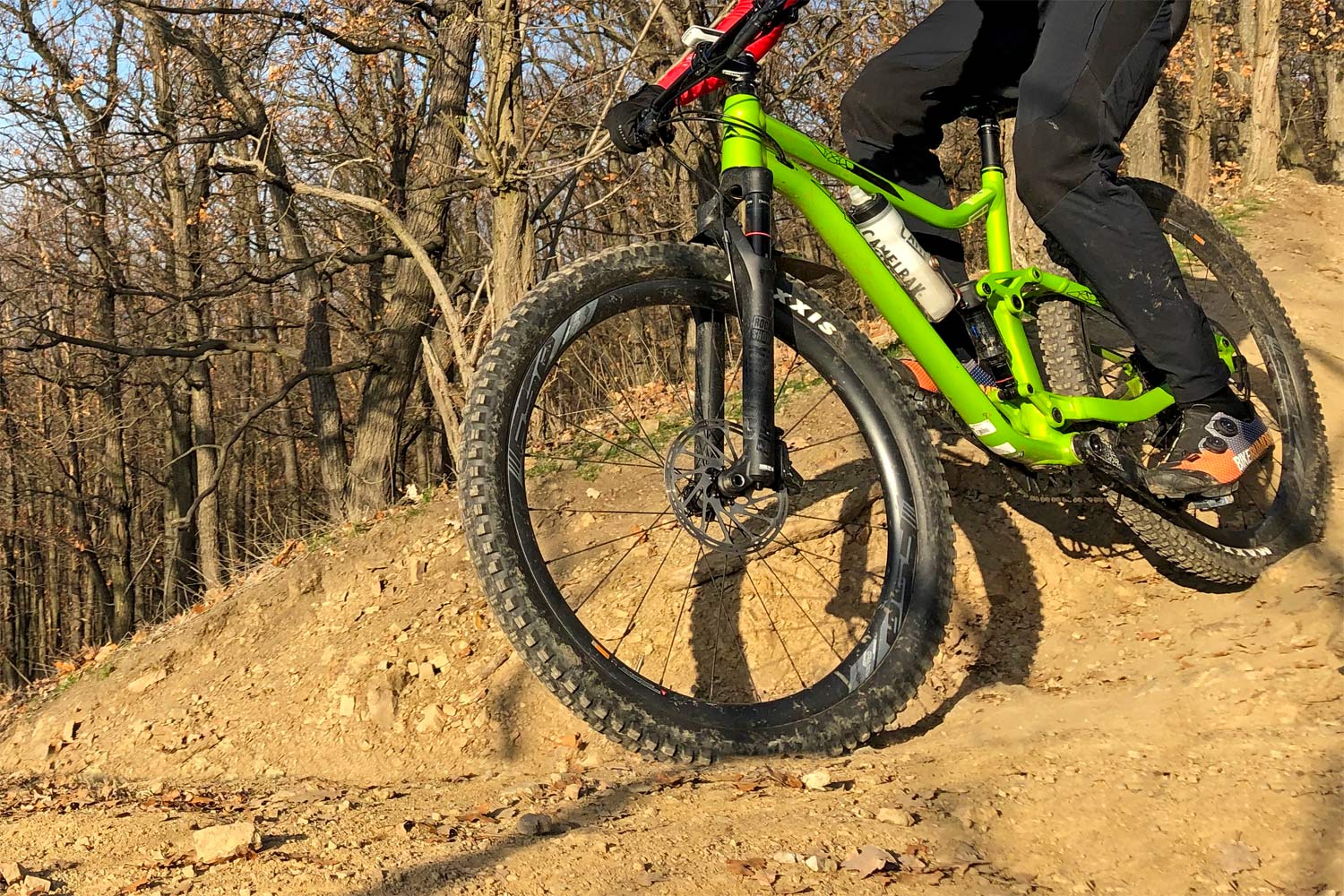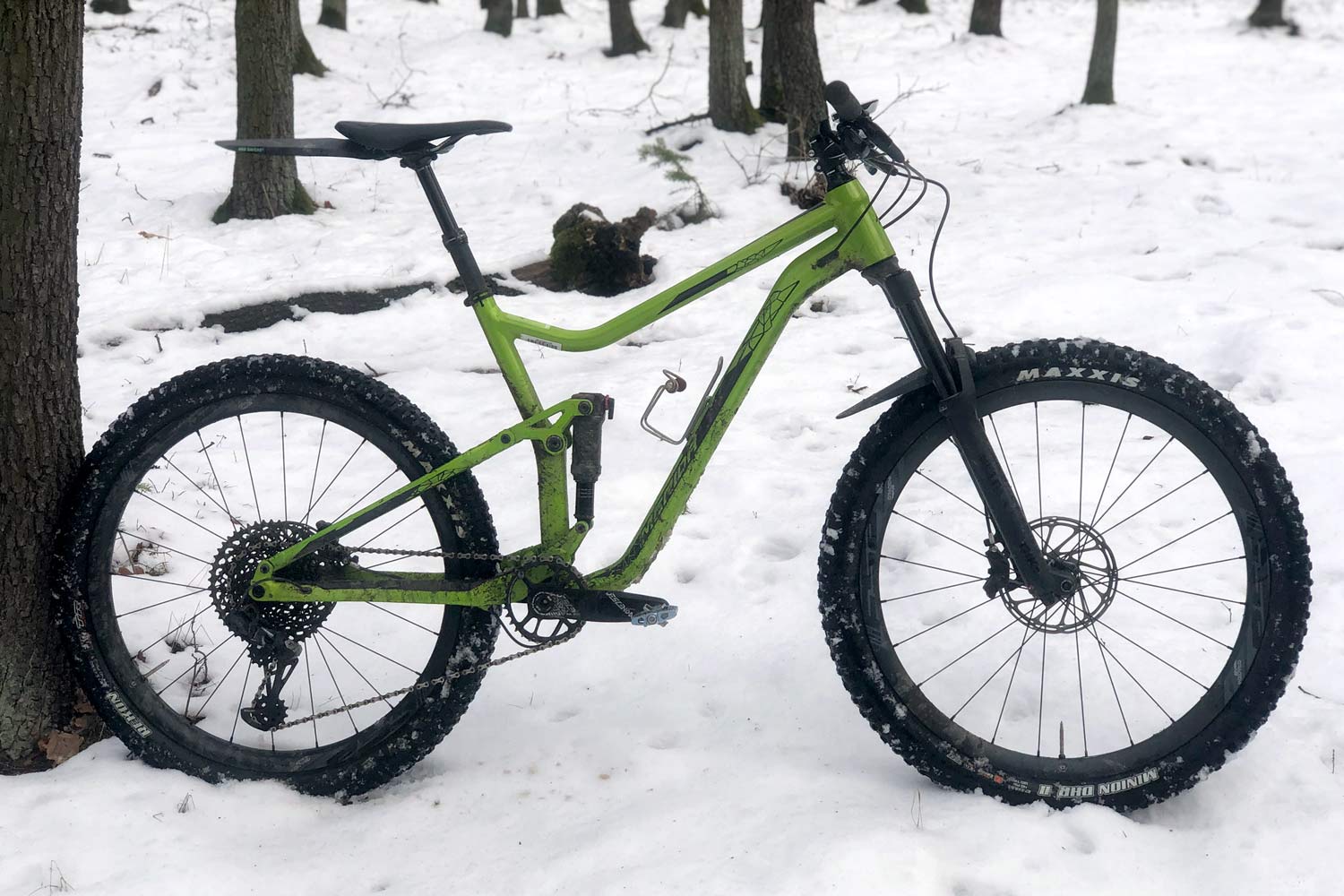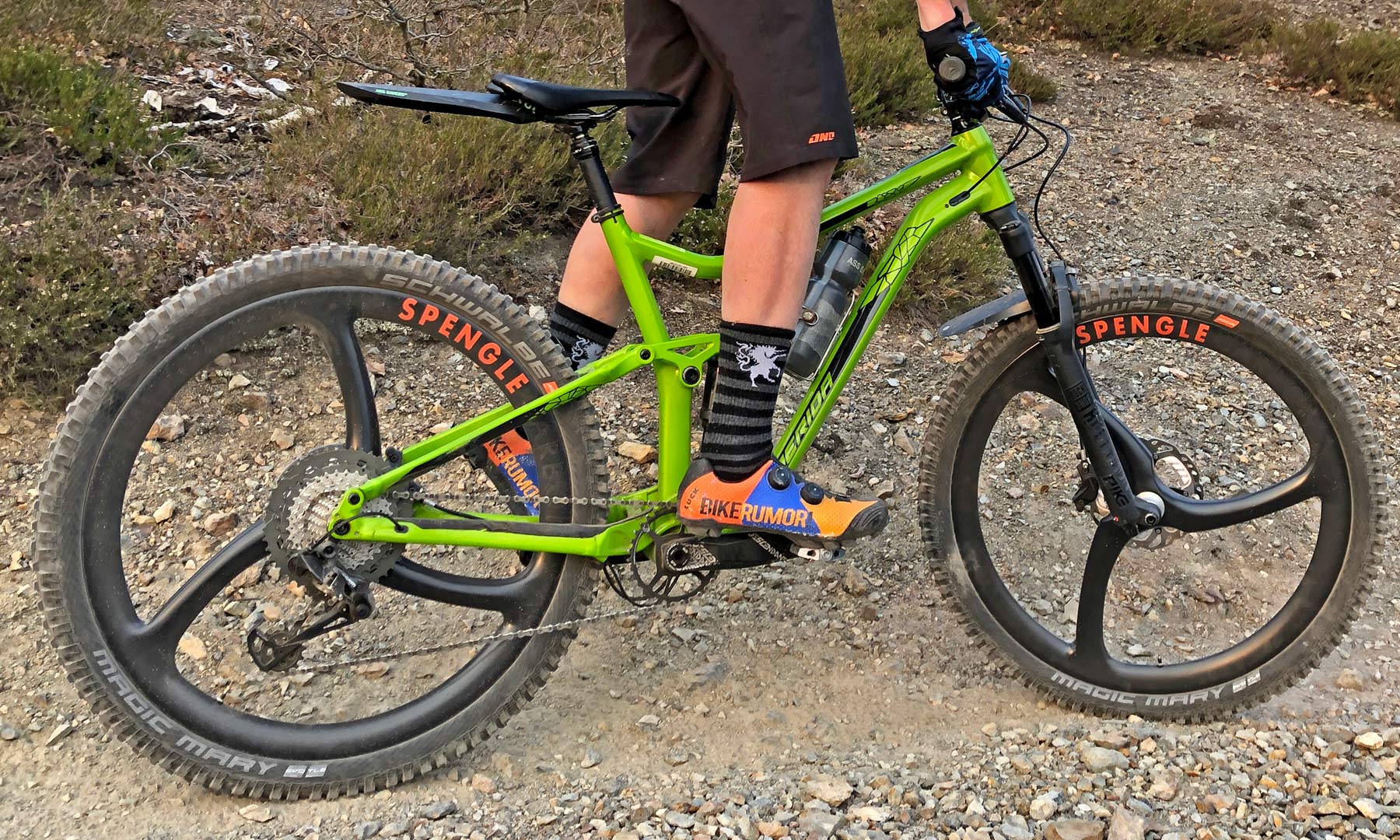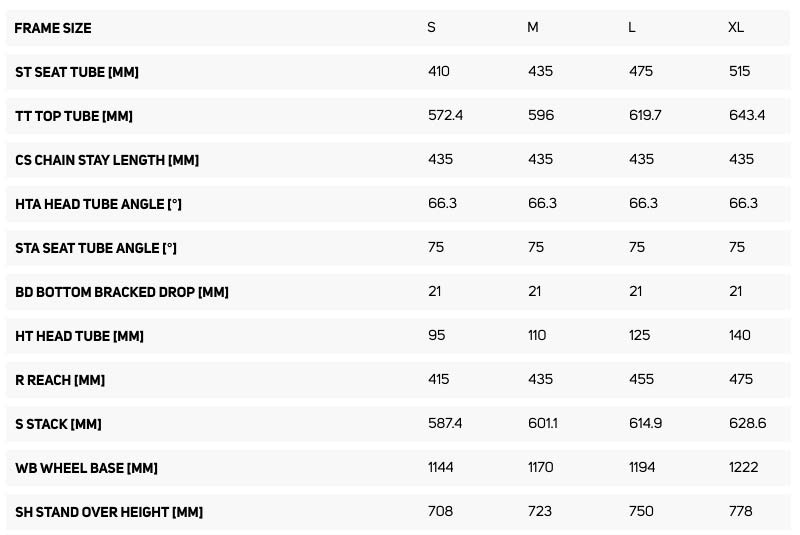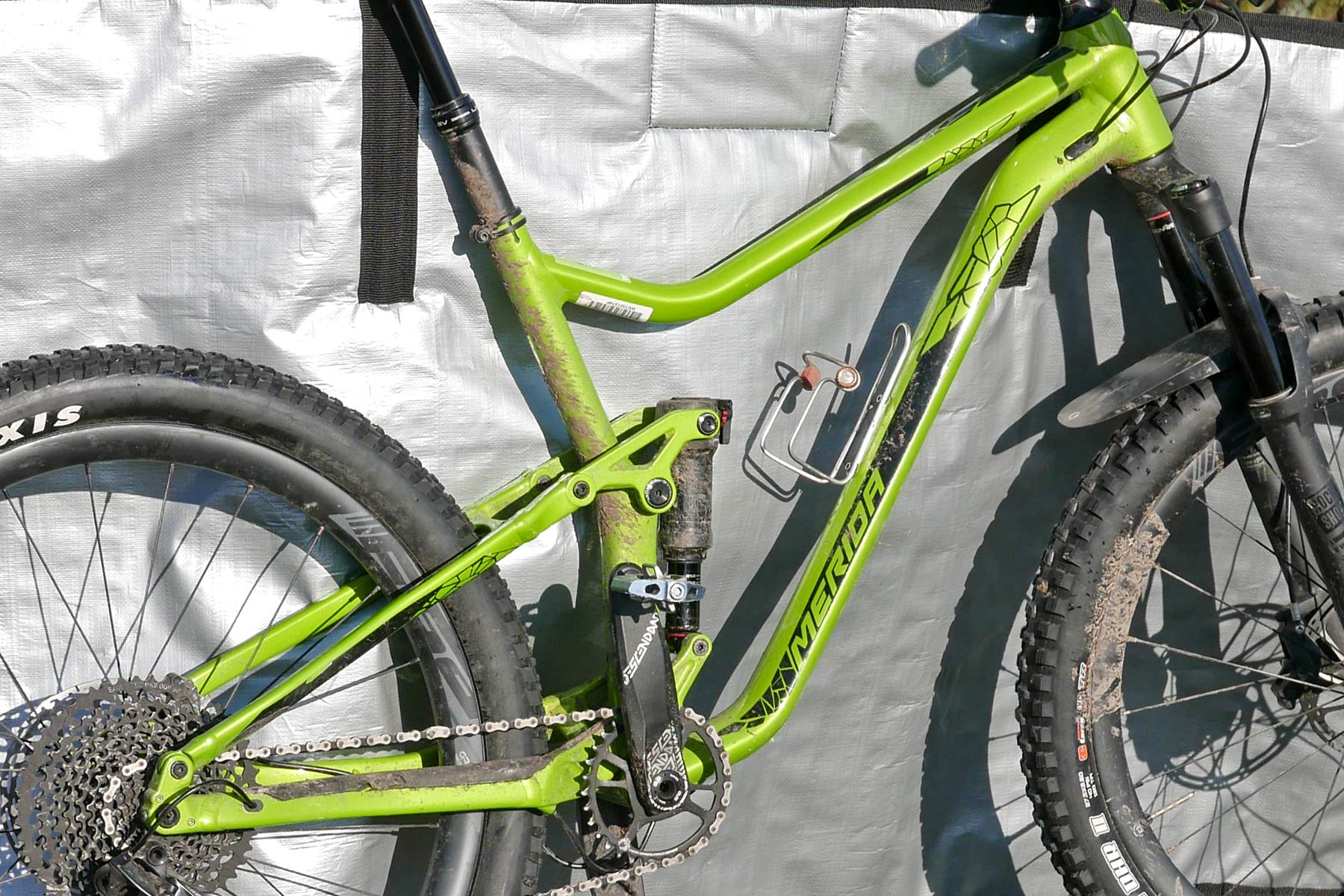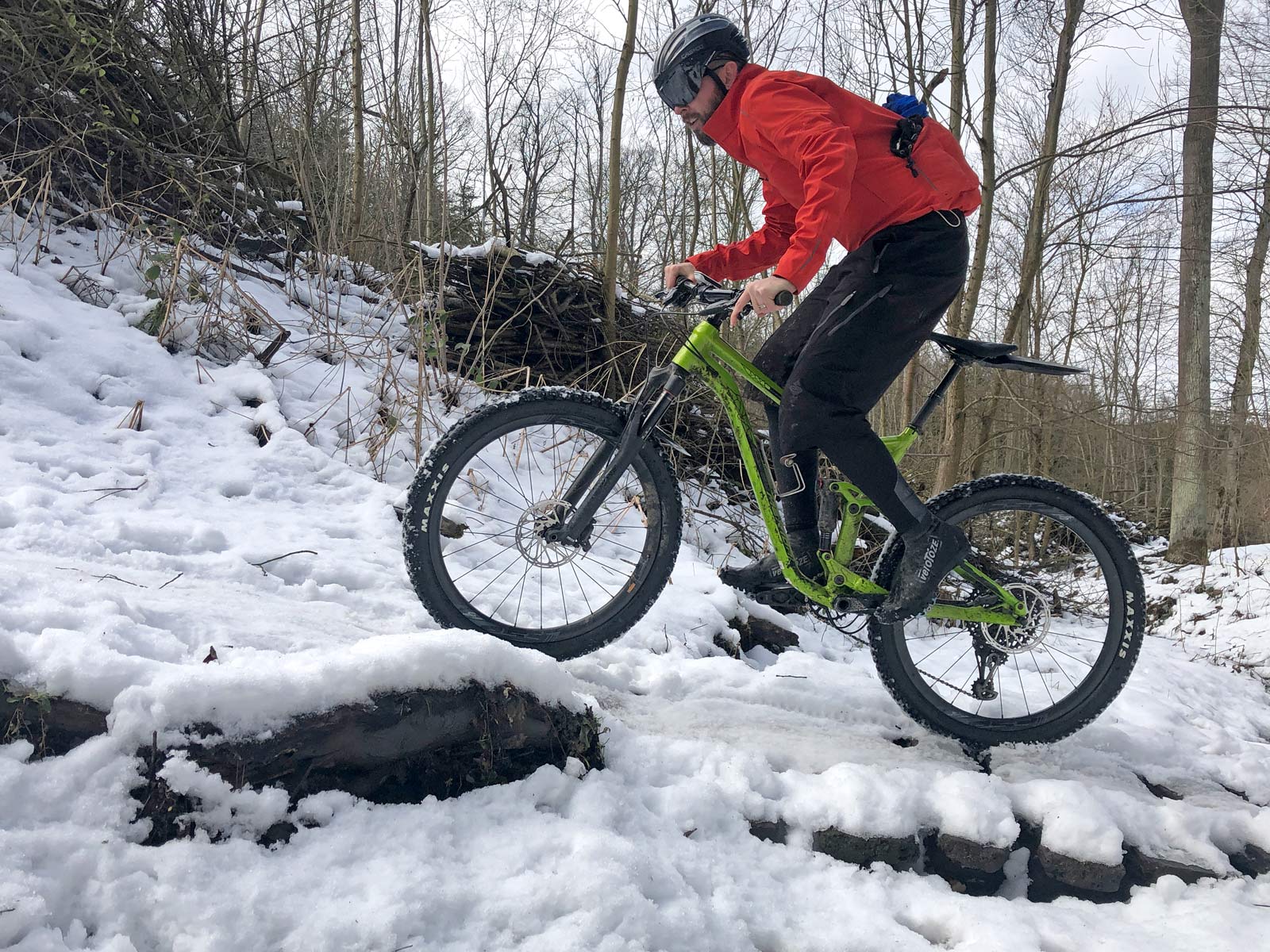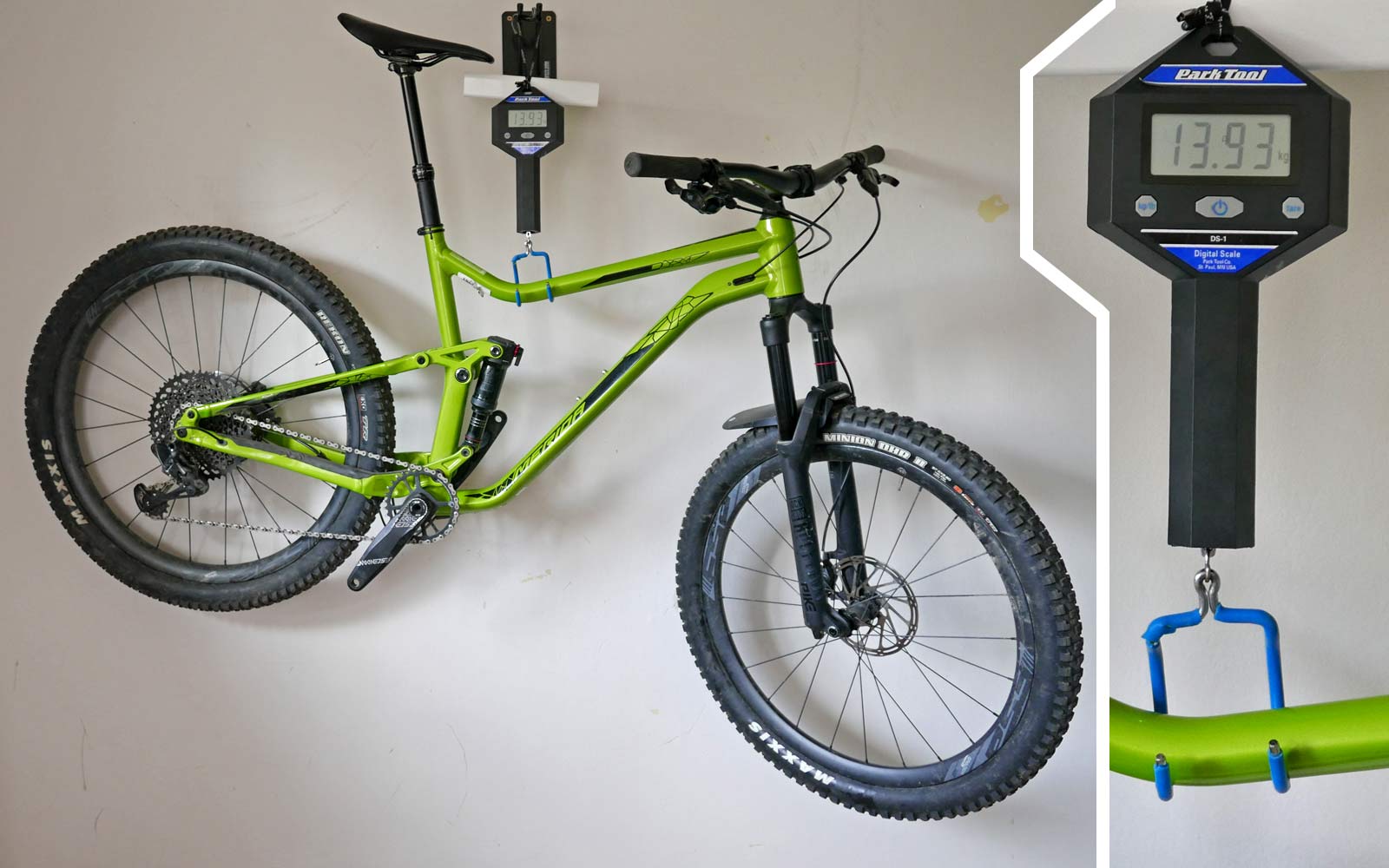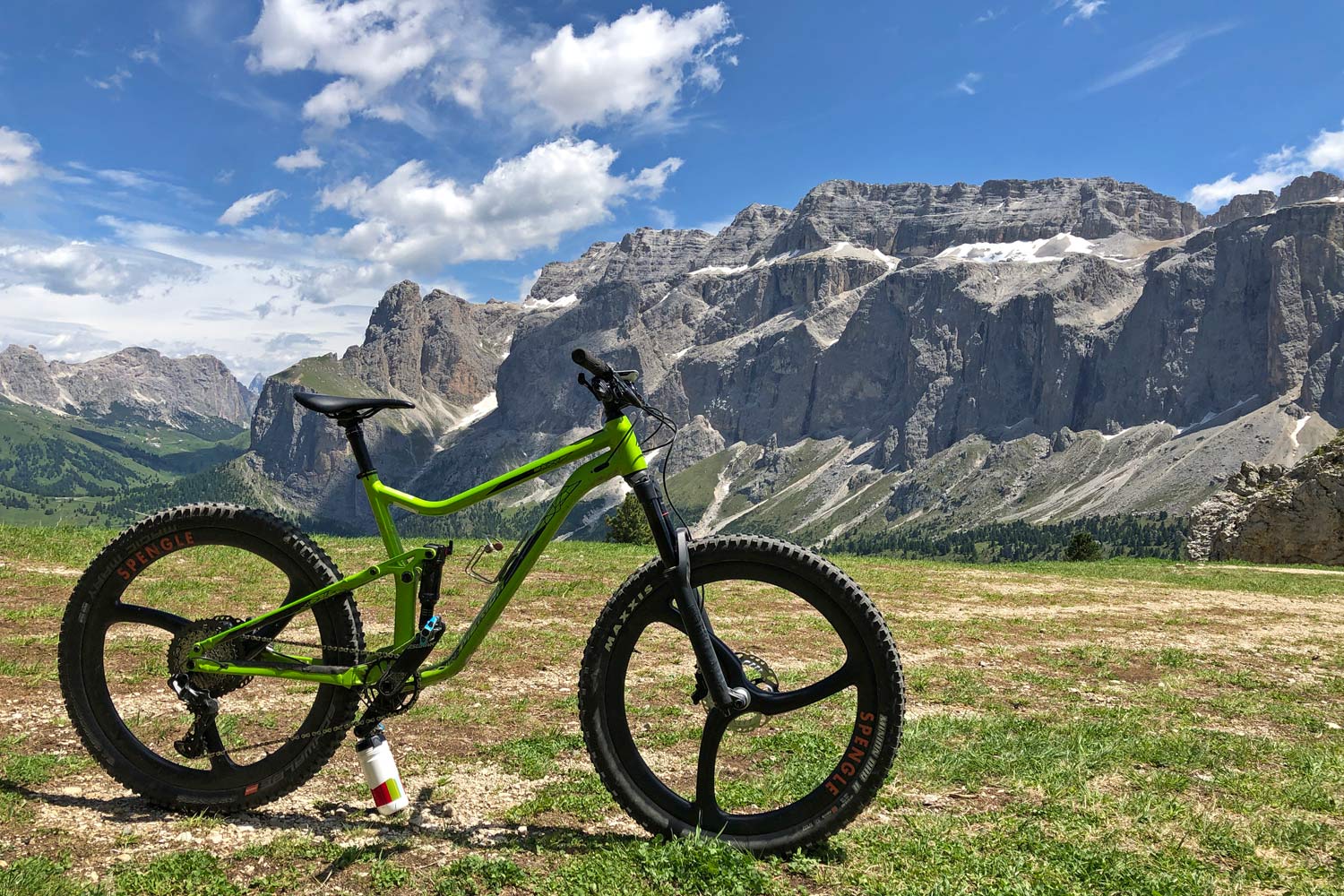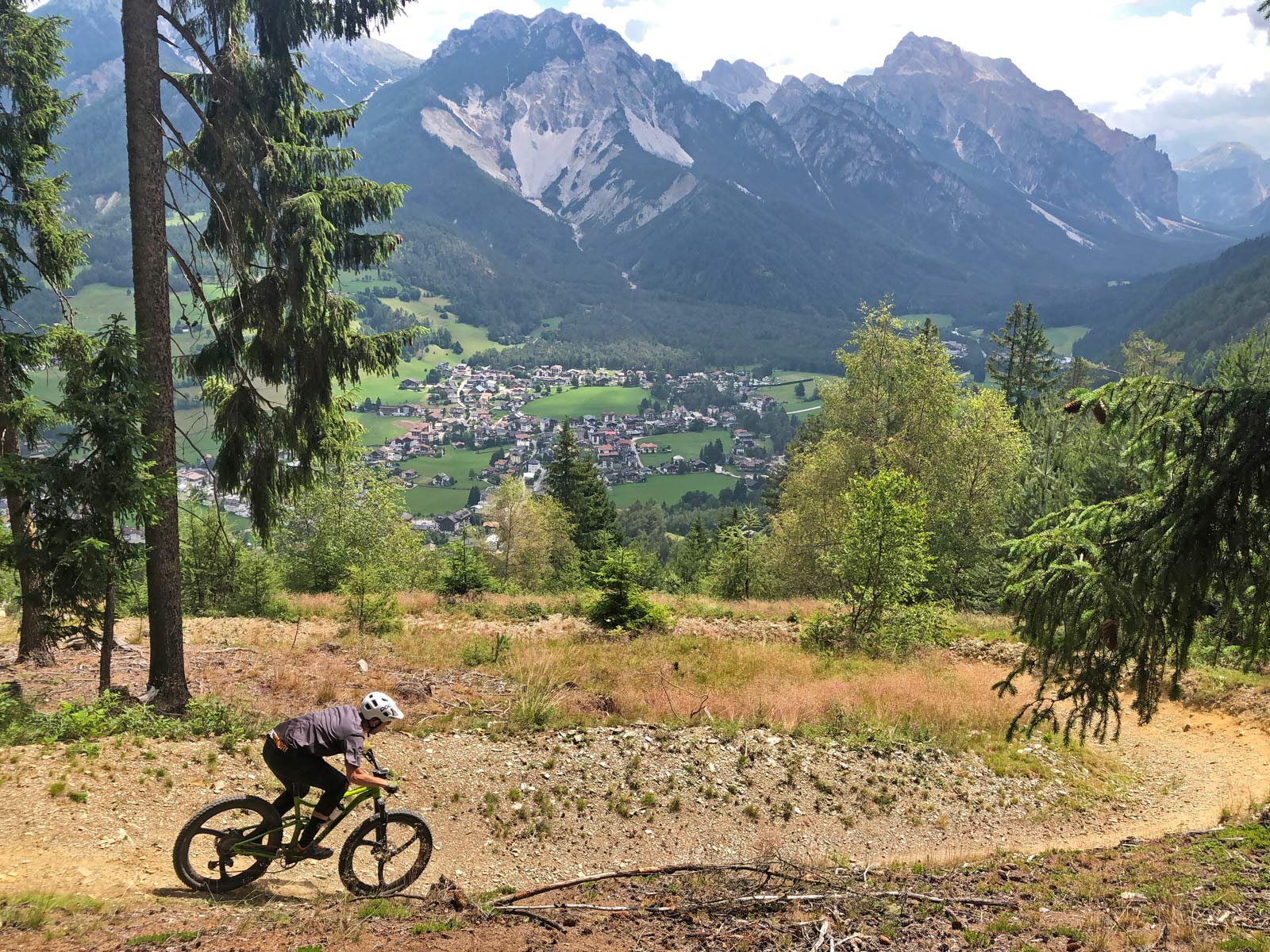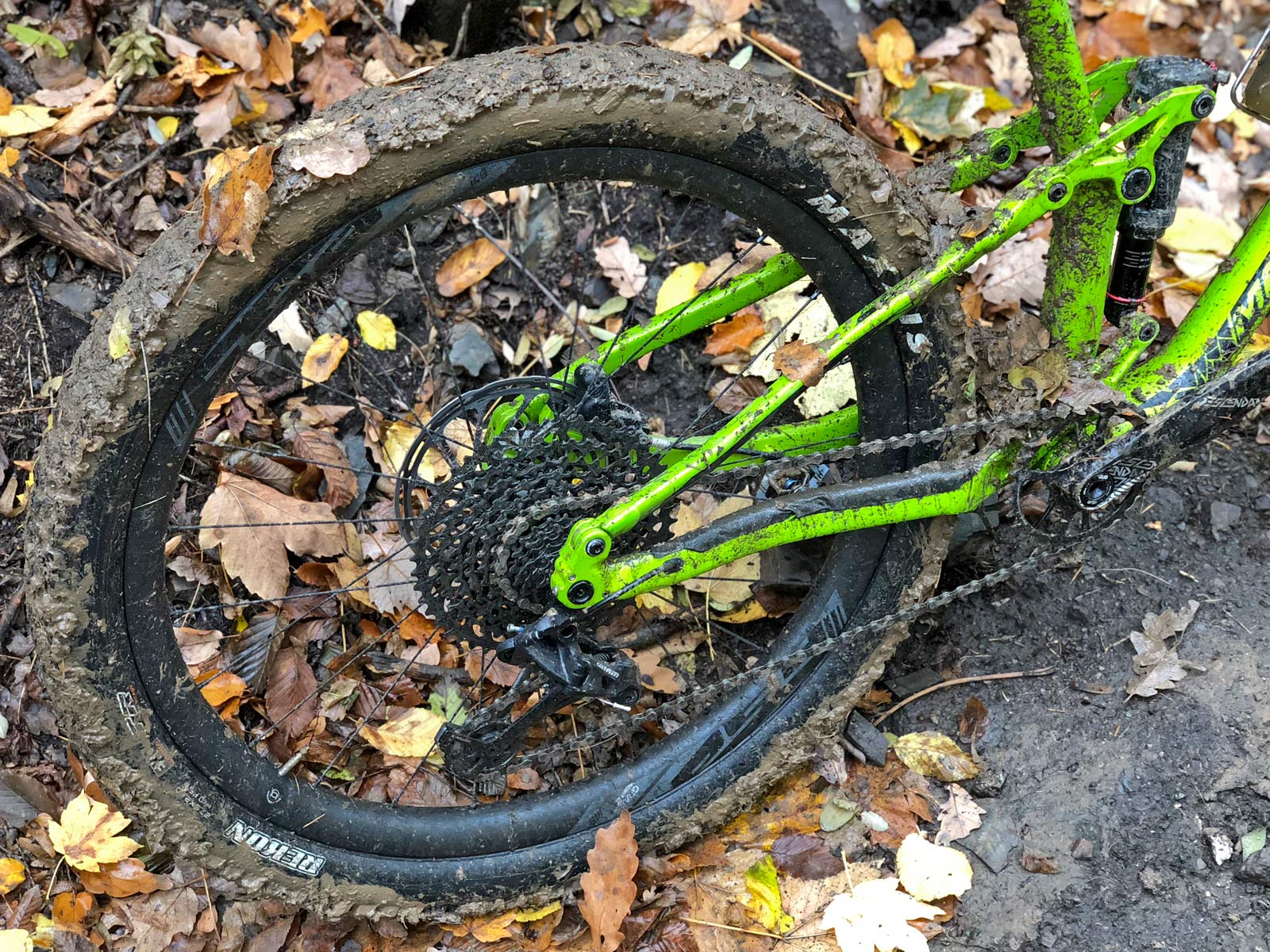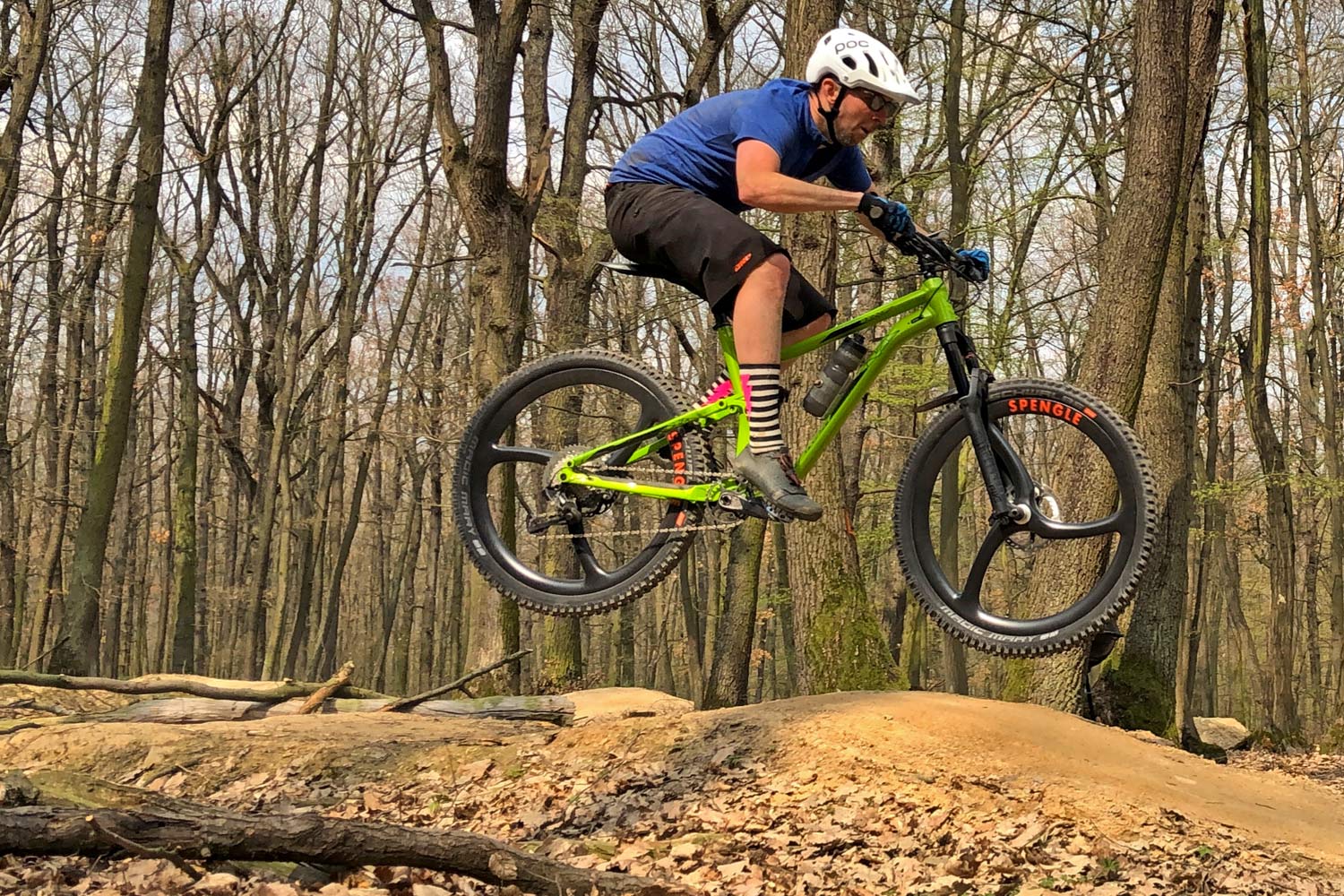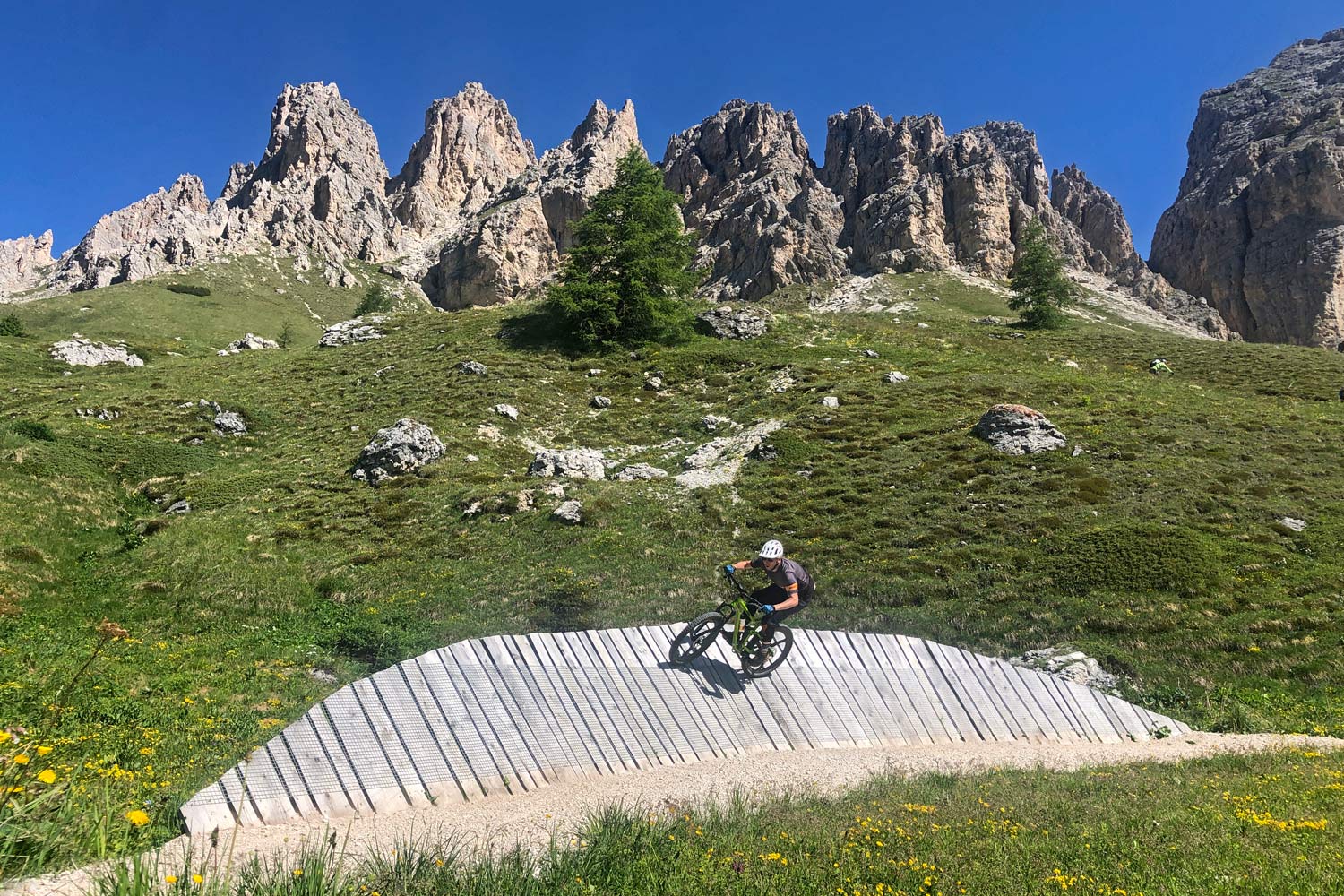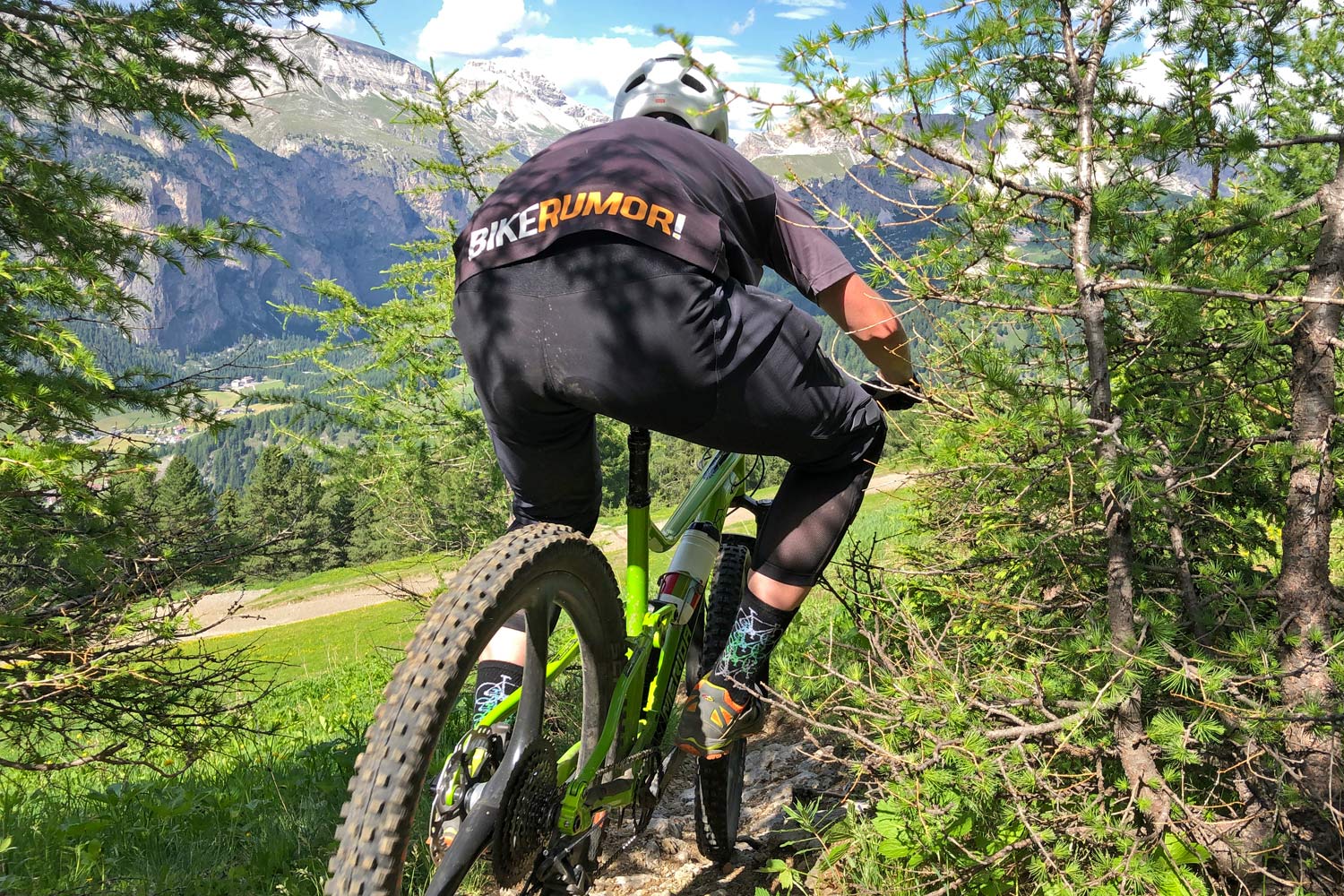After last summer riding Merida’s surprisingly plush short-travel One-Twenty trail bike, I wanted to see what a bit more travel in the same Float Link suspension platform could do. So, for the better part of nine months, I have been riding its big brother – the alloy One-Forty – a 140mm rear travel 27.5″ trail bike introduced a couple of years back that still outperforms what its name would suggest….
Merida One-Forty 900 alloy trail all-mountain bike
With enduro and XC seeming to get the most new bike focus these days, it can be can be tricky to define how much travel a trail bike should have that falls somewhere in the middle. All-around trail bikes used to sit closer to 120mm of front & rear travel, but with recent major improvements in suspension performance and lightweight wheel & tire combos, that has become marathon XC territory. And new longer travel bikes can still pedal well enough for everyday trail riding, with plenty of reserve for the occasional bit of more technical trail.
That’s exactly where the One-Forty sits, a plush 140mm single-pivot bike with a floating linkage design that pedals well and bombs downhills even better, thanks to modern slack trail geometry and a 150mm travel RockShox Pike fork. The 900 build of this bike also delivers weight & performance, at a fraction of the price of many comparable carbon trail bikes. This build is not exactly cheap, but you get a lot of bang for your buck.
2019 One-Forty 900 – What’s New?
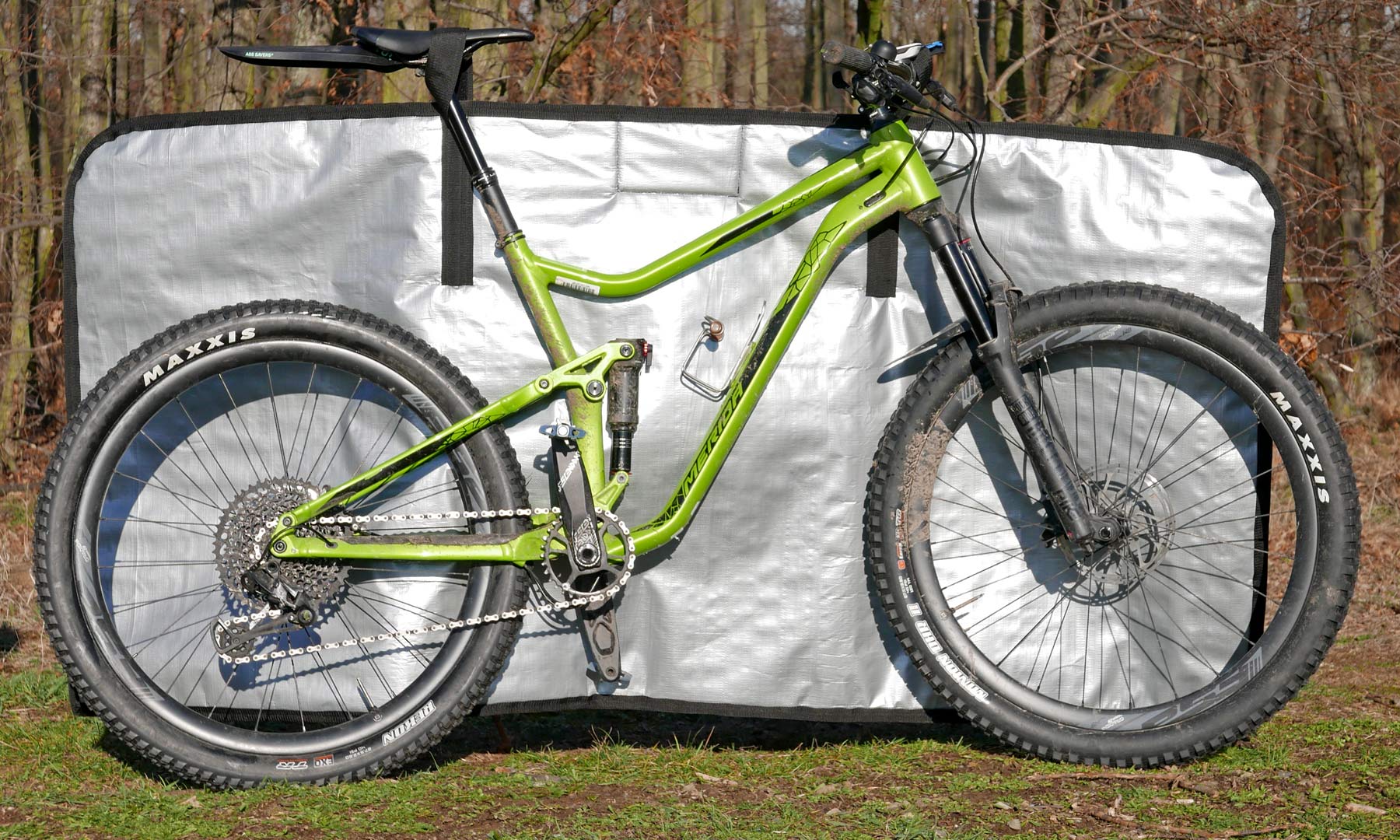
The One-Forty is actually not a brand-new model; it was introduced back as a 2017 bike with Merida’s current Float Link faux-bar, linkage-driven high single-pivot suspension design, plus bigger tire clearance, shortened chainstays, longer & slacker geometry, and internal dropper routing.
In the time since, other bikes have gotten similar updates, but this remains the most aggressive of Merida’s versatile trail bikes. That means a 66.3° headtube for my large test bike and a comfortable 455mm reach.
That Float Link suspension uses a rocker arm to drives a trunnion-mount shock, with its lower eyelet mounted to an extension of the swingarm in front of the main pivot. This gave Merida designers the ability to manipulate the shock curve, which results in plush early travel so it is smooth off little bumps, plenty of support through mid-travel, then a seemingly bottomless feel through the end of travel. That makes the rear 140mm feel like even more, and even set soft with 30% sag, it felt well balanced to the 150mm travel fork.
Pricing, Spec, Availability & Actual Weight
This made-in-Taiwan, triple-butted & hydroformed 6061 alloy Merida One-Forty 900 retails for £3500 / 4000€. It gets a solid performance spec featuring a RockShox Pike RC fork, Deluxe RL shock, a SRAM GX drivetrain & Code R brakes, plus a KS Lev dropper. Rounding it out are a nice set of lightweight 27.5mm internal, Boost-spaced FSA Gradient LTD carbon wheels. And while it isn’t sold in the USA, Meridas are available to in most every other market for our global audience.
Merida quotes a complete bike weight of 13.96kg for the One-Forty 900. Our size Large test bike clocked in a tiny bit less than that at 13.93kg (30.7lb) with tubes. It subsequent lost about 300g when I swapped out the big tubes for a tubeless setup, and then gained back the same weight when I put on a set of Crankbrothers Candy 7 pedals.
But an aluminum mid-travel, trail bike under 14kg/31lb is no slouch. With 2.6″ Maxxis tires it certainly can feel like you are creeping along on those paved transfers. But once you hit proper trail this bike goes uphill surprisingly quickly, and will bomb down anything on the other side.
So how does it ride?
 The One-Forty is pretty much all you can ask for in an affordable aluminum trail bike. Set up soft with 30% sag it is an active bike soaking up rough trails, rarely bottoming out through all of its travel. The 150mm Pike RC isn’t the most tunable in the Pike family, but it does the job reliably and offer predictable handling to match the One-Forty.
The One-Forty is pretty much all you can ask for in an affordable aluminum trail bike. Set up soft with 30% sag it is an active bike soaking up rough trails, rarely bottoming out through all of its travel. The 150mm Pike RC isn’t the most tunable in the Pike family, but it does the job reliably and offer predictable handling to match the One-Forty.
After putting it through its paces since late last fall, the One-Forty still eats up smooth singletrack and big mountain descents like it did on day one – with no play in the suspension at all and predictable handling that easily rails through berms.
2019 Merida One-Forty 900 Review – trail riding impressions
 Besides the fact that the plush feel of the Float Link rear suspension just makes me want to ride downhill faster and faster, I realized that the bike climbs incredibly well too. I might have first chalked it up to the nice light FSA carbon wheels and wide 2.6″ Maxxis Minion/Rekon tires. But even swapping to the 700g heavier Spengle Carbon & 2.3″ Magic Marys, and I was still making it up super steep climbs that I’ve struggled with on many other bikes.
Besides the fact that the plush feel of the Float Link rear suspension just makes me want to ride downhill faster and faster, I realized that the bike climbs incredibly well too. I might have first chalked it up to the nice light FSA carbon wheels and wide 2.6″ Maxxis Minion/Rekon tires. But even swapping to the 700g heavier Spengle Carbon & 2.3″ Magic Marys, and I was still making it up super steep climbs that I’ve struggled with on many other bikes.
It seems that with the steep seattube, long reach & short stem, the bike really does climb like a goat. With a wide range Eagle 12-speed drivetrain, when the climbs get long & steep, a quick flip of the lockout lever on the Deluxe RL shock and then slam the dropper all the way up, and the One-Forty climbs incredibly well – really out climbing short travel XC bikes.
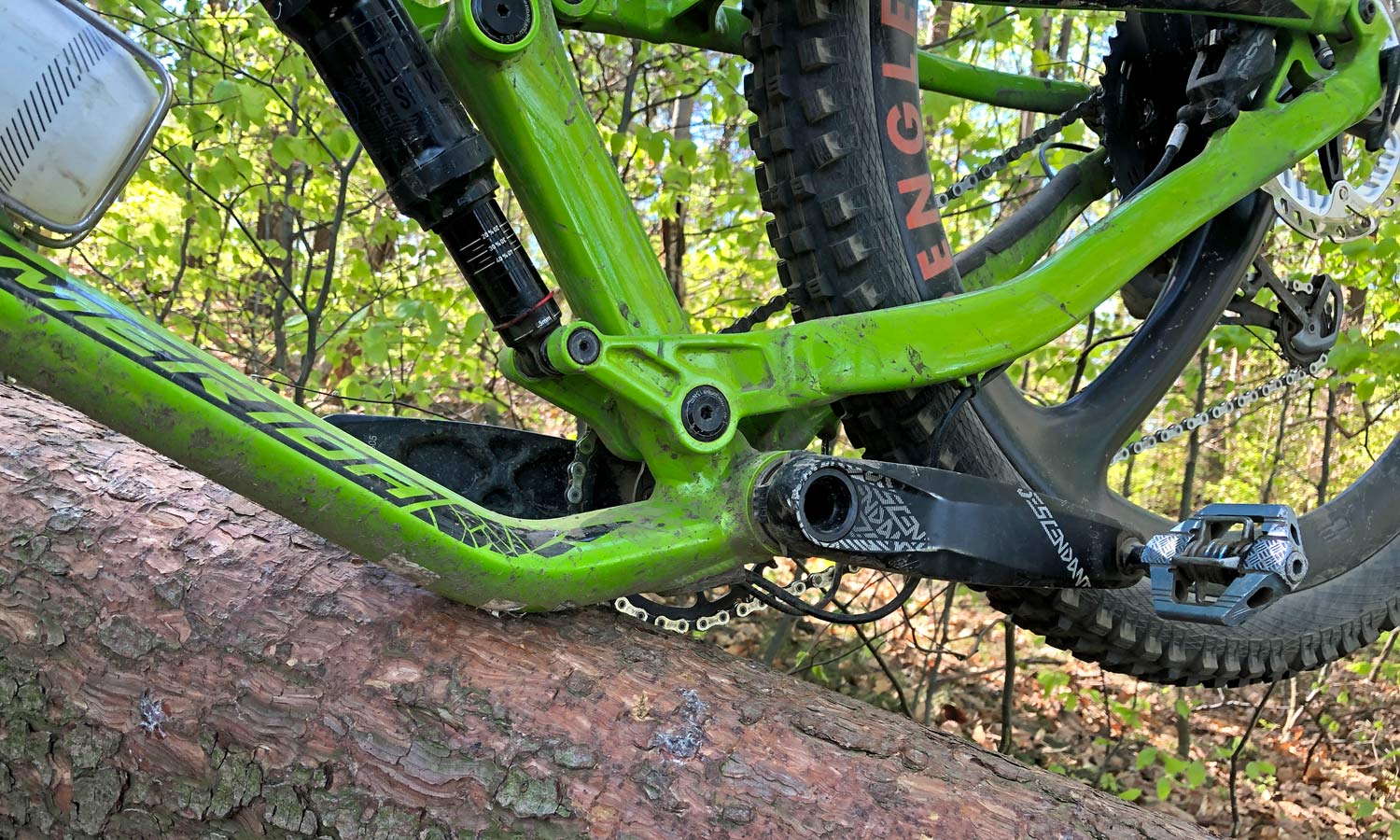 One of the only things I’m not really thrilled about on the Merida is the location & layout of its internal routing. Cables enter on the sides of the top tube and come out of a large port just in front of the bottom bracket. The result is a large cable loop just behind the BB & below the swingarm that is necessary to allow the bike to cycle through all of its travel.
One of the only things I’m not really thrilled about on the Merida is the location & layout of its internal routing. Cables enter on the sides of the top tube and come out of a large port just in front of the bottom bracket. The result is a large cable loop just behind the BB & below the swingarm that is necessary to allow the bike to cycle through all of its travel.
Riding trails with lots of rocks and log piles, I was worried more than once about damaging or catching the cables, and I get the sense that rear shifting isn’t as precise as it could be due to the tight housing bend here. Now to give Merida credit, the cable entry & exit ports do securely lock down the cables, and I was able to take a little bit of extra cable slack out at the bottom bracket. But to be honest, I would be much happier with cable loops going over top of the bottom bracket, which would require a much smaller cable loop.
One of the great things about this trail bike is its massive, grippy tires. Not quite Plus-sized, the 2.6″ tires on 27.5mm internal rims offer a ton of traction. It really is hard to argue with the control of large volume tubeless tires run at low pressure. But 2.6″ tires is probably the real upper limit for this bike.
During the winter melt, a number of times the rear end packed up with muddy leaves. The low-profile Rekon rear tire didn’t really ever pack in a ton of mud, so it never brought me to a standstill. But if you routinely ride muddy trails or swap in a more aggressive tire, you might need to size down to ensure adequate mud clearance.
Final Thoughts on the One-Forty
Merida isn’t a flashy brand that you are going to show off to your friends. And this One-Forty 900 doesn’t exactly turn heads (well, at least not until I put those tri-spoke carbon Spengle wheels on there.) It really just looks like a pretty basic aluminum trail bike, which to be fair, is exactly what it is. But that’s really what’s great about this bike…
The One-Forty seriously punches above its weight class, with a plush 140mm of rear suspension that pairs nicely with the 150mm Pike fork. Everyone stops to compliment my wife on her smooth 150/160mm travel carbon Juliana Roubion (which in a size Small only weighs about 300g less than this bike, but sells for essentially 2x as much.) But that just gives me an opening to sprint ahead, bombing down the trail uncontested. Then it’s up to her to try to see if she can catch me…
I get to ride a lot of premium super bikes in the course of covering new product launches as Bikerumor’s European Editor. But oddly enough this affordable alloy Merida One-Forty is one of the hardest bikes for me to send back. The versatile aluminum trail bike has been able to easily handle everything from local singletrack to big days climbing, traversing, then catching uplifts & descending across multiple Alpine bikeparks. It’s never flashy, but always gets the job done, having fun the entire time. Kinda what a mountain bike is supposed to do, right?
